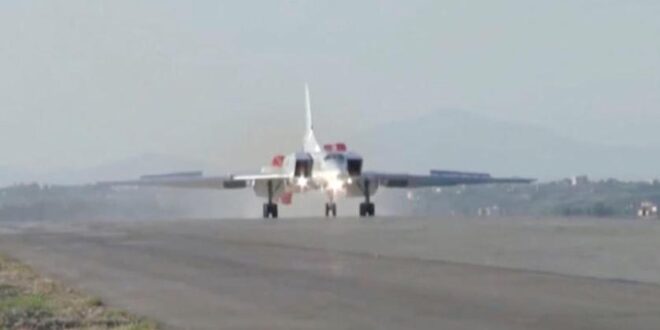The Syrian army backed by pro-government factions, including the National Defense Forces (NDF), kicked off a new combing operation in the southern countryside of Deir Ezzor.
According to the Syrian Observatory for Human Rights (SOHR), the operation is meant to secure the area of al-Duwair, which is located between the towns of al-Mayadin and al-Bukamal.
In a report, the London-based monitoring group said that Syrian government forces are searching for “ISIS members who stepped up their activities in al-Badia [the Syrian desert] since the beginning of January.”
The new operation is backed by the Russian Aerospace Forces, who have been targeting ISIS hideouts in the deserts of Raqqa and Deir Ezzor.
A recent wave of Russian airstrikes, which targeted the outskirts of the town of al-Resafa in the southern Raqqa countryside, killed 11 terrorists and wounded at least 20 others.
Recent attacks by ISIS cells on Syrian regime forces in the southern countryside of Deir Ezzor were likely behind the decision to launch the operation.
The new operation will likely push ISIS cells out from the Deir Ezzor desert for some time only. A more comprehensive operation is needed to fully neutralize the terrorist group’s presence in the central region.
In another report, SOHR activists documented ISIS cells having installed the organization’s flags in the villages and towns of Swaydan Jazera, Darnaj, Al-Jerthi Al-Gharbi, Al-Jerthi Al-Sharqi, Abu Hardoub and the market in Gharanij town in the eastern countryside of Deir Ezzor.
According to the Observatory data, the death toll of regime forces since the beginning of 2022 at the hands of ISIS militants in the Syrian Badia has reached 20.
More than 1,636 pro-regime fighters have been killed since March 2019, compared to 1,128 ISIS militants, according to the Observatory.
The terrorist group’s self-declared “caliphate” once stretched across vast parts of Syria and Iraq and administered millions of inhabitants.
A long and deadly military fightback led by Syrian and Iraqi forces with backing from the United States and other powers eventually defeated the militant proto-state in March 2019.
The remnants of ISIS mostly went back to their desert hideouts from which they continued to harass the Syrian government and allied forces.
The group is thought to be attempting to secure sources of funding through trafficking and racketeering, prompting observers to warn of a militant resurgence in the region.
 Eurasia Press & News
Eurasia Press & News




